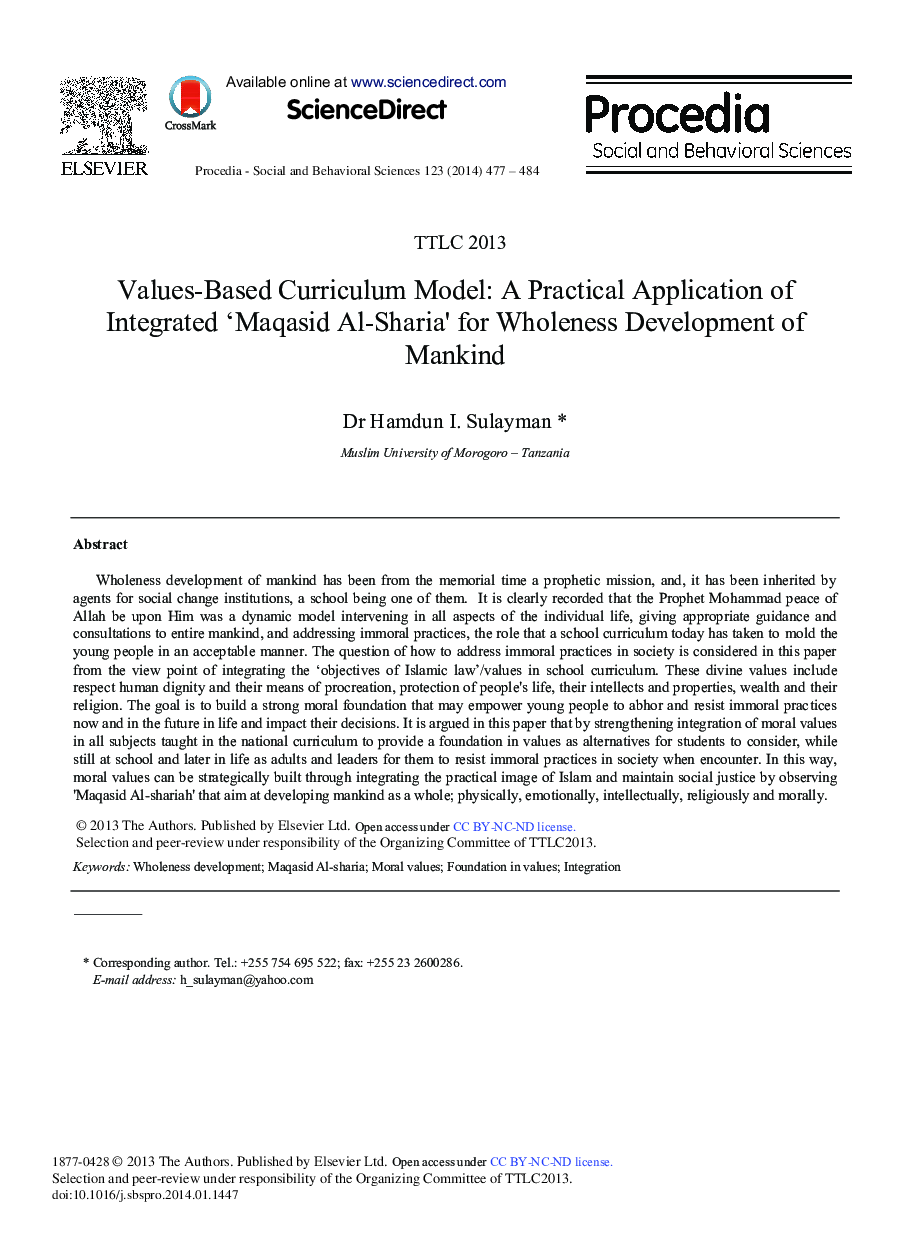| Article ID | Journal | Published Year | Pages | File Type |
|---|---|---|---|---|
| 1114432 | Procedia - Social and Behavioral Sciences | 2014 | 8 Pages |
Wholeness development of mankind has been from the memorial time a prophetic mission, and, it has been inherited by agents for social change institutions, a school being one of them. It is clearly recorded that the Prophet Mohammad peace of Allah be upon Him was a dynamic model intervening in all aspects of the individual life, giving appropriate guidance and consultations to entire mankind, and addressing immoral practices, the role that a school curriculum today has taken to mold the young people in an acceptable manner. The question of how to address immoral practices in society is considered in this paper from the view point of integrating the ‘objectives of Islamic law’/values in school curriculum. These divine values include respect human dignity and their means of procreation, protection of people's life, their intellects and properties, wealth and their religion. The goal is to build a strong moral foundation that may empower young people to abhor and resist immoral practices now and in the future in life and impact their decisions. It is argued in this paper that by strengthening integration of moral values in all subjects taught in the national curriculum to provide a foundation in values as alternatives for students to consider, while still at school and later in life as adults and leaders for them to resist immoral practices in society when encounter. In this way, moral values can be strategically built through integrating the practical image of Islam and maintain social justice by observing ‘Maqasid Al-shariah’ that aim at developing mankind as a whole; physically, emotionally, intellectually, religiously and morally.
